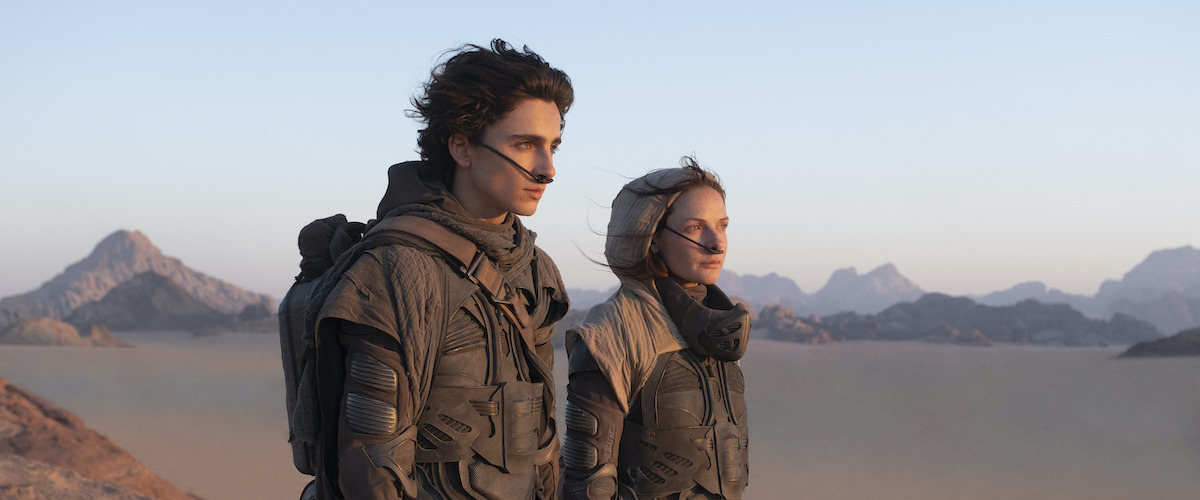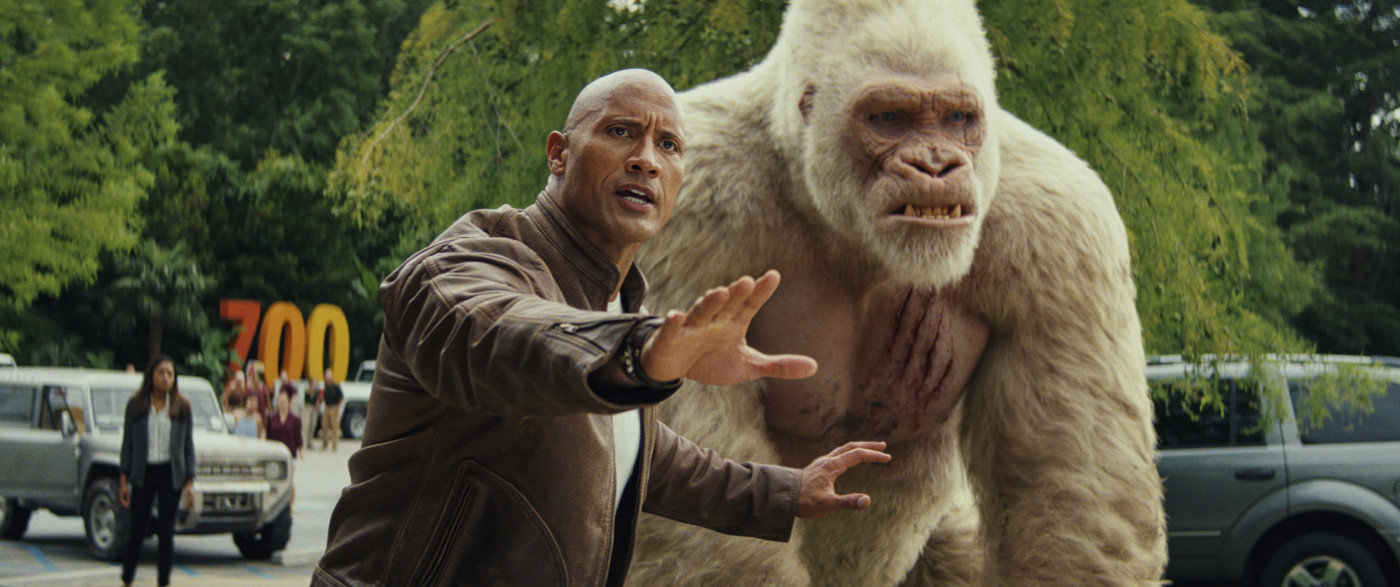Denis Villeneuve has some huge brass balls, huh? Imagine being so confident in your material that you give it a Fellowship of the Ring ending. (“Of course there will be more; we’re just getting started”) This, despite the only Dune known to most of us is the painful 1984 trainwreck envisioned by David Lynch. Let me put this in perspective – imagine a remake of Waterworld or Ishtar or Gigli in which he filmmaker was so confident of the material that he/she/they deliberately left off the ending.
That’s nuts.
Is Denis Villeneuve justified? Well … yes, more-or-less. With a caveat or two … or eight. We’ll get to that.
Epic doesn’t begin to describe this feast of a picture; Dune can be enjoyed for cinematography alone … and probably is. Watching Dune, I was struck by how poor the 1984 version looked and how it could have looked like Lawrence of Arabia. This Dune does look like Lawrence of Arabia, and then some.
“How magnificent does this picture look?” you might ask. Let me put it this way: Not two months ago, Rebecca Ferguson was the centerpiece in Reminiscence, a film notable for little besides stunning visuals. Ms. Ferguson is also in this film — as a shrouded afterthought. It is as if the director said, “We don’t need you to be pretty; here, wear this hood.”
As for the film itself, Paul (Timothée Chalamet) is a prince of the house of Atreides, the dudes who rule planet Caladan. Caladan is one several planets in this solar system of which the only important one is Arrakis. Arrakis is a giant desert, but has all the “spices,” which make the universe go round. I dunno if the spice stuff is supposed to represent oil or drugs or money or what, but the spices have to be mined, and whomever mines them controls everything. At the beginning of Dune, this power has passed to Duke Leto (Oscar Isaac), Paul’s father. Paul’s mother, Lady Jessica (Ferguson), is some sort of witch, teaching him Jedi mind tricks over the breakfast table.
So you get this – everybody’s going on an extended vacay to planet sand to grab all the power for a while. This doesn’t sit well with pretty much anybody else in the universe, but the most important foes here are the rival planet Harkonnens, the Fremen (the Arrakis sand natives), and the giant worms that live on planet sand.
While Duke Leto doesn’t give a crap about the Harkonnens, he wants to play nice with the Fremen and has a summit with their leader, Javier Bardem. You can see how complicated this thing is already, right? Bottom line: all we really care about is Paul, who keeps having dreams about Zendaya. Pfft, get in line, pal. Seriously, Paul keeps dreaming about what might happen in the sequel when he and Chani (Zendaya), a Frewomen, might actually meet. See, there’s a whole lot of crap that has to go on first, like political maneuvering, thrilling escapes, and giant sandworms.
It’s impossible not compare this Dune to the 1984 version, so here’s my breakdown:
Dune 2021 holds several improvements on Dune 1984: First, the script handled the new vocabulary much better. Dune is a story in which exposition will absolutely consume a mere mortal. Villeneuve introduced new words, characters, and plotlines in snippets, making the whole much easier to digest. Second, Timothée Chalamet is a huge improvement over Kyle MacLachlan. I have no idea why the 1980s belonged to Kyle and I’ve seen nothing of his that couldn’t be improved with a better actor, of which there are many, including Chalamet. Third, it’s a cinematography fan’s dream. Dune of 1984 took cues from 1982’s Tron. Finally, for all the moving parts, the focus was right. At Dune’s core  is the theme of a young man finding himself, not unlike Star Wars. All the rest –tyrants, spices, wars, worms- is just a parade of sci-fi.
is the theme of a young man finding himself, not unlike Star Wars. All the rest –tyrants, spices, wars, worms- is just a parade of sci-fi.
That said, this Dune did NOT completely escape the problems of the original: The source material does not lend itself well to the screen. We saw that in 1984. There are simply too many moving parts in the Dune saga and those willing to call this version the best sci-fi ever are completely ignoring that fact. Also, or hero has very ill-defined super powers. Is he a Jedi? Mystic? Sensei? What? I gave this part a pass because Paul is figuring out who he is just like we are – but I was quite annoyed that he’s still having visions of the future ten minutes before closing curtain. Dude, we’re here now. Stop dreaming stuff. Start living stuff. And this may be a trivial quibble, but I think it matters: From a pure fanboy perspective, you can’t have a film in which Jason Momoa is on one team, Dave Bautista is on another, and not have an epic battle between them.
At some point, you have to love the magic of sci-fi or movies in general, like when the film favors us with a sparring bout between Paul and his weapons master (Josh Brolin). You’re here to tell me that a hand-to-hand combat match between Thanos and Laurie from Little Women is an even match. Ummm, ok.
I still think the Dune source material ain’t great. I also think this picture drags a little, especially when it gets to Atreides governance issues. Still, I cannot claim this film is anything less than reel-to-reel eye candy, which should compensate adequately. I’m ok with calling this a good film, but I’m not even a little close to calling it “great” and I seriously doubt I will remember where it left off when Dune 2 comes out.
A youthful adult with power not yet seen
Finds himself in need of permanent sunscreen
On a planet of sand
With sword in hand
Are you sure he doesn’t reside in Tatooine?
Rated PG-13, 155 Minutes
Director: Denis Villeneuve
Writer: Jon Spaihts, Denis Villeneuve, Eric Roth
Genre: Lord of the Sand
Type of being most likely to enjoy this film: The patient
Type of being least likely to enjoy this film: People who feel like they’re settling



